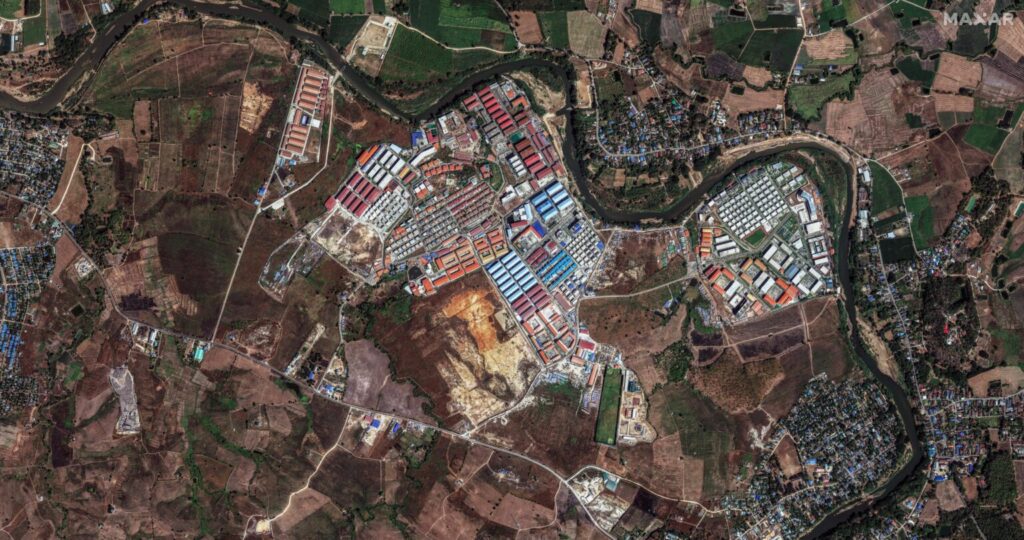How many times have you received a weird text from an unknown number or a random person claiming, “Sorry wrong number, I thought this was so and so” on an app? Too many to keep track. It’s commonplace, even expected in our digital society. But did you ever think that those scam-ish texts could be connected to a huge network of organized cyber crime and human trafficking?

Source: CoinDesk
Since the onset of Covid, we’ve seen an enormous influx in cyber scams. With more people stuck at home on their devices, it didn’t take long for scammers to find their “prey” in the digital world. Also, organized criminal networks quickly caught on to digital scamming since most physical business locales were extremely impacted by Covid. (Ex. Chinese gangs that operated via casinos prior to Covid moved to digital scams, using the “Pig Butchering” method.)
So what is this “Pig Butchering” crypto scam and why is it called that?
The name comes from the nature of how the scam happens – the scammer “fattens up” their victim before the “slaughter,” the final stage of the scam. This scam is played out on a messaging app, dating app, or other type of social media. Basically the scammer uses a fake profile of a gorgeous, wealthy-looking person to be-friend people. (Often the US, Canada, and other first world countries are targeted.) A conversation may start with a seemingly wrong number text but that’s the bait. It could also be a casual conversation on a dating app. It’s a type of romance scam that unfortunately thousands of people have fallen for.
Once a conversation is started, it’s just a matter of creating an illusion of trust, a bond. Scammers are trained on how to approach people, what to say, how to say it, what emojis to include. There are manuals that outline entire conversations for each day of the scam. The scammer will start to say things like, “I had such a great day today, I made so much money!” Then the obvious, “Oh really, how?” (You may be thinking, how can anyone fall for this?)
The scammer proceeds to explain that they’ve been investing in crypto using some app and introduces you to it. Since you have been building a relationship with this person, you may be interested and take a look at the app. It looks legit. It has a real website, it has thousands of reviews on the App Store. So you download it. You decide to start with a small investment, just to try it out.

Now here’s the “fattening process.” These apps are in fact fake. However, they are very well designed to look identical to real ones and function the same way. There’s a key difference: these fake apps can be easily manipulated to make it look as though you are making money and your investments are thriving. Since you downloaded the app and have your own account, you have a false sense of security. Not realizing that what you’re seeing on your screen is being strategically controlled by someone else. You’re excited by the wins and you invest some more, and then some more.
The day comes along when you decide you want to cash out. Suddenly, you get kicked out of your account, or get a strange message that your cash out has to be reviewed, but the process never moves on, you never get to cash out. You reach out to your “friend” and all of sudden they don’t exist anymore. No response, you never hear from them again. This is the typical narrative of a “Pig Butchering” scam. People have lost hundreds of thousands of dollars in this scam. Completely losing their life savings, investments and borrowed money from relatives and friends. Essentially, losing everything.
It’s tempting to be angry at these scammers right? They are the predators here. But remember I said there’s a connection to human trafficking. Here it is…the scammers themselves are victims too. Thousands of people, particularly in developing nations, have been lured under false pretenses to “jobs” that turned out to be imprisonment and forced labor at a “call center.”

Satellite image of KK Park ©2023 Maxar Technologies
For example, one man was promised a job in Thailand. Upon arrival he was taken to Myanmar, all his documents were held and he was forced to work in a call center compound. (These compounds are like large apartment complexes, usually in very remote areas.) He was given a fake profile of a beautiful, young Russian woman in the Real Estate industry based out of Salt Lake City, Utah. Using this fake identity, he was forced to scam Americans using the method I mentioned above.
All of his online interactions were monitored. He was not free to leave and had a quota. If he couldn’t meet the quota, there were consequences. He was denied food or physically punished, even beaten. This man is one of the thousands of victims of labor trafficking in these compounds. Luckily, this man escaped, you can hear more about his story in some of the articles I reference below.
So what can be done? Unfortunately, the situation is complex overseas. There are awareness campaigns to inform people about these “fake jobs” – in hopes of deterring people from ever getting lured. Raiding these compounds is not likely given that they are controlled by the largest organized criminal networks in the world. Another challenge is the fact that everything is done via crypto, making it harder to track.
Here are some things you can do to avoid being scammed:
- Do not engage with scam like messages wherever they come from
- Do not engage with unknown numbers
- Do not share personal information with people you have never met in person before
- If it sounds too good to be true, it IS.
If you are a victim of this scam or something similar, report it immediately. This helps officials gather more data on these crimes (which are severely under-reported) and can result in some of your lost funds getting back to you.
For more information on this topic please take a look at the following articles and videos:
https://time.com/6899646/scams-trafficking-drugs-southeast-asia-golden-triangle/

